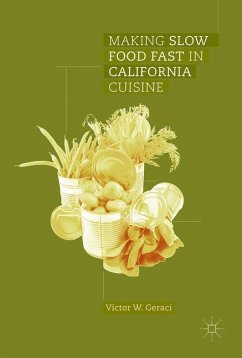This book follows the development of industrial agriculture in California and its influence on both regional and national eating habits. Early California politicians and entrepreneurs envisioned agriculture as a solution to the food needs of the expanding industrial nation. The state's climate, geography, vast expanses of land, water, and immigrant workforce when coupled with university research and governmental assistance provided a model for agribusiness. In a short time, the San Francisco Bay Area became a hub for guaranteeing Americans access to a consistent quantity of quality foods. To this end, California agribusiness played a major role in national food policies and subsequently produced a bifurcated California Cuisine that sustained both Slow and Fast Food proponents. Problems arose as mid-twentieth century social activists battled the unresponsiveness of government agencies to corporate greed, food safety, and environmental sustainability. By utilizing multidisciplinaryliterature and oral histories the book illuminates a more balanced look at how a California Cuisine embraced Slow Food Made Fast.
Bitte wählen Sie Ihr Anliegen aus.
Rechnungen
Retourenschein anfordern
Bestellstatus
Storno








